 |
2002 Oregonians for Rationality booth |
 click on the badge
click on the badge |
 |
2002 Oregonians for Rationality booth |
 click on the badge
click on the badge |
| How
do our eyes
fool us? |
How do our ears fool us? |
||
| How do
others
fool us? |
|||
| How do we
fool ourselves? |
Some
Magic of the Mind by Jerry Andrus . . .
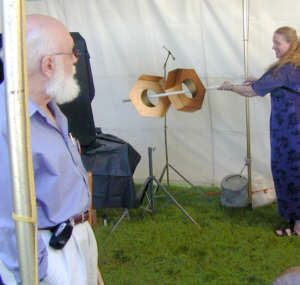
Nutty nuts |
as
presented by The Amazing Randi.
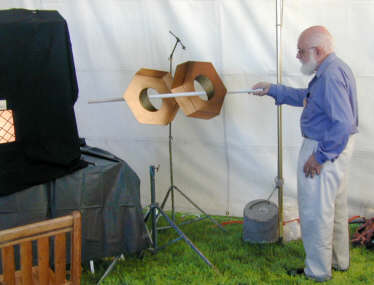 |
| And
then Randi amazed everyone with his wonderful deceptions.
At his evening talk on Thursday July 18, Randi made clear that he can deceive us because things are not always what they seem. We might even want to be deceived, especially if the deceit seems desirable. We are accustomed to certain things, and the magician can fool us by making us think the customary is what he did while he did something very different. Then . . . SURPRISE! He surprised us often. He also pointed out how deceit can be tragic...as when "psychics" claim to cure what they cannot and thier victims abandon cures which could possibly work. Randi has a standing offer of over a million dollars to anyone who can prove, under adequately controlled conditions, any claims of the paronormal. It has remained unclaimed for many years. |
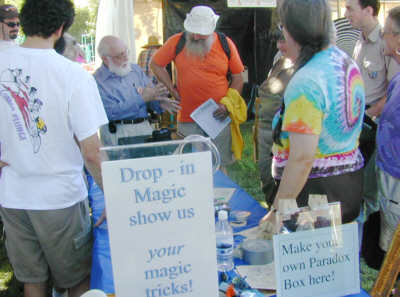
Randi's amazing Web site. |
Knowledge for Use supplied many new cube puzzles to illustrate many points about deception...self and otherwise.
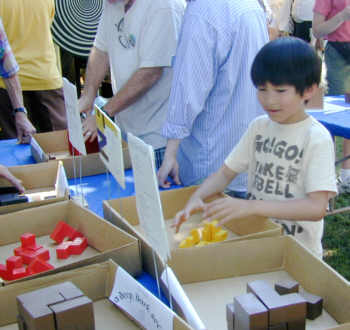 |
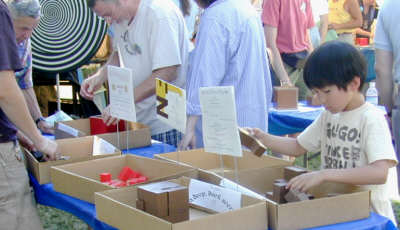
The points of these puzzles are important to anyone interested in the subtle deceptions of pseudoscience. See
the points
that reveal unseen dimensions of science |
|
Exponential growth? The biggest, the best, the most? What's cracking? Endangered specie? Epicenter? Parameter? |

Things are seldom what they seem at first glance. Seeing science comes from taking second glances ...and third, and fourth, and fifth, and... then CLICK HERE Posters at Da Vinci Days asked visitors to examine their understanding of some of the simple concepts of science. |
Kinetic Sculpture Race
Nothing,
but nothing, is too outlandish.
|